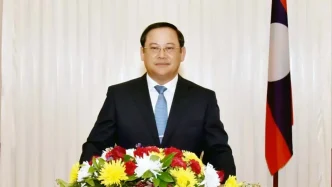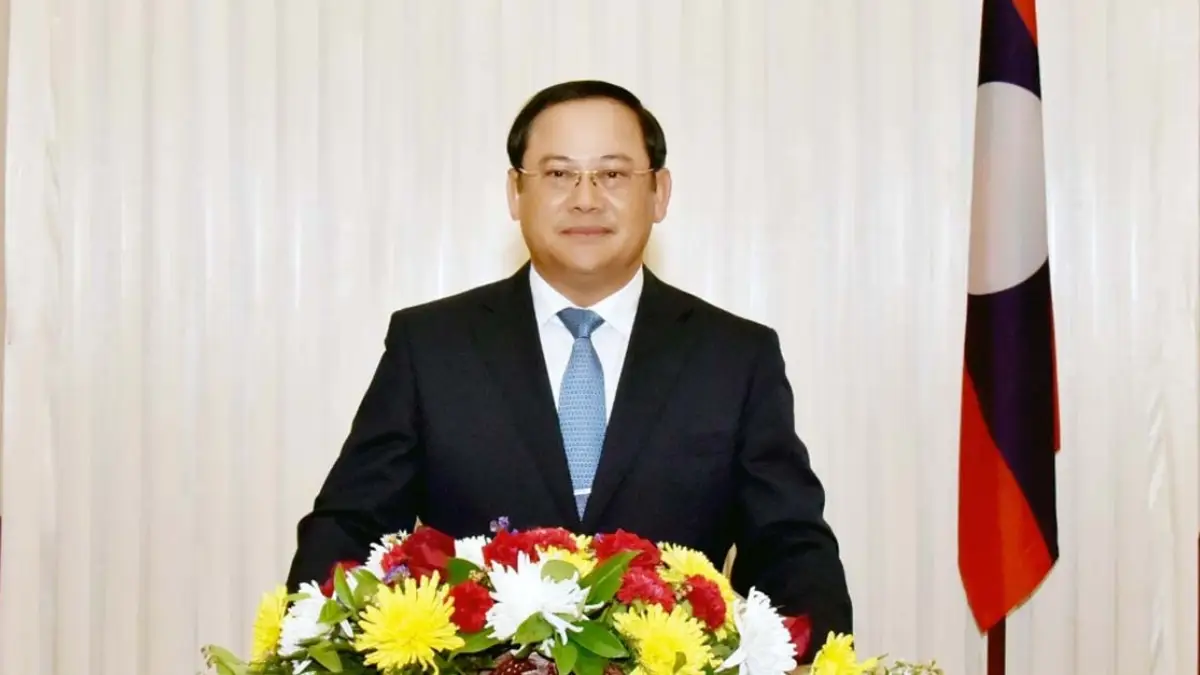In a bid to stimulate economic growth and support small businesses, the Lao government has put forward a series of amendments to its tax laws, offering incentives for micro-enterprises and publicly listed companies. Announced as part of a broader strategy to enhance the business environment in Laos, these proposed changes aim to address longstanding challenges faced by small-scale entrepreneurs while encouraging corporate transparency and investment. With the National Assembly set to debate the amendments in the coming weeks, the reforms could mark a significant shift in the country’s economic policy.
Easing the Burden on Micro-Enterprises
Micro-enterprises, which form the backbone of Laos’ informal economy, stand to benefit significantly from the proposed tax amendments. Many of these small businesses, often family-run or community-based, struggle under the weight of complex tax obligations and limited access to formal financial systems. Under the new proposals, micro-enterprises with annual revenues below a specified threshold—reportedly around 400 million Lao Kip (US$18,000 as of recent exchange rates)—would qualify for simplified tax procedures and reduced rates. This move is designed to encourage formal registration, bringing more businesses into the tax net while easing their financial burden.
Local business owners in Vientiane have expressed cautious optimism about the changes. “For years, we’ve struggled with paperwork and high costs” said Somchai Vong, who runs a small noodle stall in the capital. “If these amendments make it easier to comply without losing income, it could help us grow.” The sentiment reflects a broader hope among small-scale entrepreneurs that the government is finally addressing their needs, though some remain skeptical about implementation.
The focus on micro-enterprises aligns with Laos’ broader development goals, particularly in rural areas where economic opportunities are often scarce. By reducing tax barriers, the government hopes to foster entrepreneurship and curb the urban-rural economic divide. However, analysts note that the success of these measures will depend on effective outreach and support mechanisms to ensure small businesses understand and access the benefits.
Incentives for Listed Companies
In parallel, the amendments propose tax incentives for companies listed on the Lao Securities Exchange (LSX), a relatively small but growing market established in 2011. Publicly listed firms could see reductions in corporate tax rates or exemptions on certain income streams, provided they meet transparency and governance criteria. The government’s rationale is clear: incentivizing companies to go public boosts market activity, attracts foreign investment, and enhances corporate accountability.
“This is a step toward modernizing our financial system” said a spokesperson for the Ministry of Finance during a recent press briefing, as reported by local outlets. “By supporting listed companies, we aim to build trust in our economy and create a more competitive business environment.” While specific details of the incentives remain under wraps pending National Assembly approval, the proposal has already sparked interest among business leaders and investors.
However, the LSX currently hosts only a handful of companies, with limited liquidity and public awareness. Critics argue that while the tax breaks are a positive signal, they may have a limited immediate impact unless paired with broader reforms to strengthen the stock market’s infrastructure. Expanding investor education and improving regulatory oversight will be crucial to realizing the government’s vision of a vibrant capital market.
Economic Context and Challenges
The proposed tax amendments come at a critical juncture for Laos, which has faced significant economic headwinds in recent years. High public debt, much of it tied to infrastructure projects under China’s Belt and Road Initiative, has strained government finances. Inflation and currency depreciation have further eroded purchasing power, with the Lao Kip losing substantial value against the US dollar over the past decade. According to recent data from the World Bank, Laos’ GDP growth slowed to 2.5% in 2022, though projections for 2025 suggest a modest recovery if structural reforms are implemented.
Against this backdrop, the tax reforms are seen as part of a broader effort to diversify revenue sources and reduce reliance on external borrowing. By supporting micro-enterprises, the government aims to stimulate grassroots economic activity, while incentives for listed companies could attract much-needed foreign capital. Yet, some economists warn that the measures must be carefully balanced to avoid exacerbating fiscal deficits. “Tax cuts are welcome, but they need to be sustainable” said Dr. Khampheng Saysompheng, an economist based in Vientiane. “Without corresponding revenue strategies, the government risks further strain on its budget.”
Another challenge lies in enforcement and transparency. Laos has historically struggled with tax evasion and inconsistent policy implementation, particularly in remote regions. Ensuring that the benefits of the amendments reach intended recipients—rather than being undermined by bureaucratic inefficiencies or corruption—will be a key test for the administration. International observers, including the International Monetary Fund (IMF), have previously urged Laos to strengthen governance frameworks as a prerequisite for economic stability.
Regional Implications
The tax law amendments also carry implications for Laos’ position within the Association of Southeast Asian Nations (ASEAN). As neighboring countries like Thailand and Vietnam implement their own business-friendly reforms, Laos risks falling behind in the regional competition for investment. By offering tax incentives, the government hopes to position the country as an attractive destination for small and medium-sized enterprises (SMEs) and multinational corporations alike. This is particularly relevant in sectors such as agriculture, tourism, and renewable energy, where Laos holds untapped potential.
At the same time, the focus on micro-enterprises could serve as a model for other ASEAN nations grappling with large informal economies. If successful, Laos’ approach may inspire similar policies elsewhere, fostering greater regional collaboration on SME development. However, experts caution that the country must first demonstrate tangible results before its reforms can be seen as a blueprint for others.
Public and Political Response
Public reaction to the proposed amendments has been mixed. While small business owners and market vendors in urban centers like Vientiane and Luang Prabang welcome the potential relief, others question whether the benefits will trickle down to the most vulnerable. Farmers and rural workers, for instance, worry that the focus on formal enterprises may overlook their needs. “We pay taxes too, but we don’t see much in return” said Bounthavy Keo, a rice farmer from Savannakhet Province. “I hope the government remembers us when making these laws.”
Politically, the amendments are expected to face scrutiny in the National Assembly, where lawmakers from diverse regions will weigh the proposals’ impact on their constituencies. The Lao People’s Revolutionary Party, which dominates the political landscape, has signaled broad support for the reforms as part of its economic modernization agenda. Nonetheless, debates over the specifics—such as the revenue threshold for micro-enterprise exemptions and the criteria for listed company incentives—are likely to shape the final legislation.
Looking Ahead
As the National Assembly prepares to deliberate on the tax law amendments, the stakes for Laos’ economic future are high. If implemented effectively, the reforms could provide a much-needed boost to small businesses and position the country as a more competitive player in the regional economy. Yet, the path forward is fraught with challenges, from ensuring equitable access to benefits to maintaining fiscal discipline.
For now, business owners, investors, and ordinary citizens alike are watching closely. The outcome of this legislative process may well determine whether Laos can turn the page on years of economic struggle and chart a course toward sustainable growth. As the debate unfolds, one question looms large: can the government deliver on its promises, or will these amendments become another missed opportunity in the nation’s development journey?















